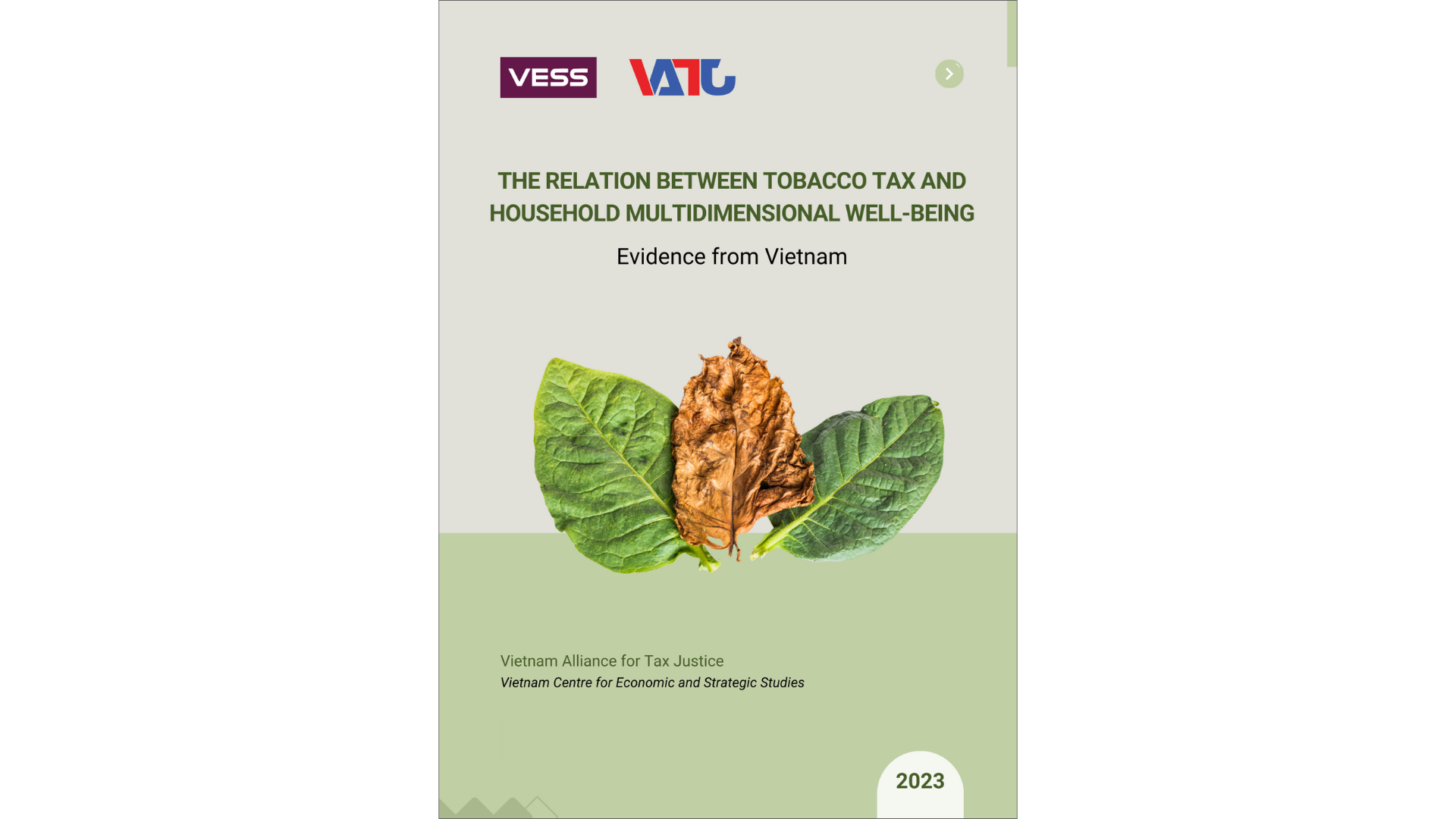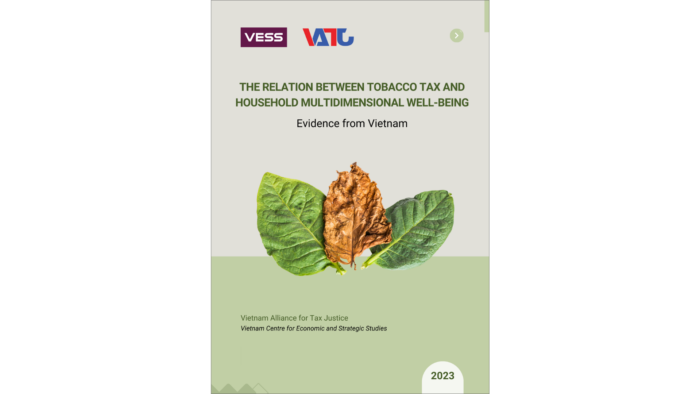
PB01_The relation between tobacco tax and household multimensional well-being: Evidence from Vietnam
Đăng vào 19/03/2024

Download Policy brief at HERE:
“Smoking is harmful to our health” has become a familiar slogan in Vietnam. In order to curb tobacco consumption and its negative health and economic effects, Vietnam has
adopted many measures, of which special consumption tax is considered the most effective, directly increasing the prices of tobacco products, which are already too low
compared to the regional and world averages. Indeed, in recent years, with the special consumption tax rates on tobacco gradually being raised, the smoking rate among
Vietnamese adults has continuously fallen. However, tobacco tax increase proposals have always faced opposition from tobacco companies, arguing that tax increases would
aggravate the financial burden on low-income groups, which have the highest smoking rates, leading to income inequality.
In that context, the study “The Relation between Tobacco Tax and Household Multidimensional Well-being: Evidence from Vietnam” was conducted to provide the
latest empirical evidence on the multidimensional impacts of tobacco consumption. The study gives an overview of the tobacco industry through analyzing the tobacco market of
Vietnam from the perspectives of demand, supply and management policies, followed by a search for the link between tobacco spending of households and their multidimensional
well-being during 2012-2018. The research results can be referenced by policymakers in the process of revising special consumption tax rates on cigarettes, and also suggest a
new method to assess the impact of tobacco that researchers may apply.



